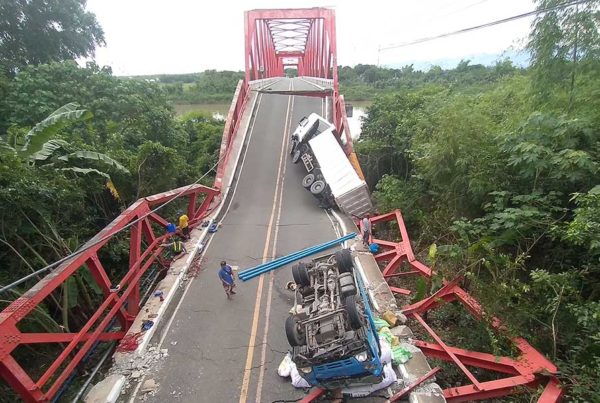Exporting Pangasinan products is doable
John Bolinas
17 Dec 2007
Mr. Eduardo Pontaoe,
It seems that you have the experience in this export business since you talk like a pro. Isn’t it that you are from Sta Barbara where mango trees lined up the streets from the town proper to Urdaneta? I do not know if you have succeeded in this export business.
I understand the extent of the problem of bringing the fresh ones, but if we can, why not. The quantity of exportable mangoes is not much to worry about but maybe the margin of profit against cost of labor and other expenses is the staking point of concern.
Exporting Pangasinan products, not only focusing on dried mangoes is doable. It’s not an overnight job but, of course, needs some time to know all the intricacies of exportation, market, projection of sales, source of supplies to name a few. The requirements imposed by the government abroad in terms of custom duties and sanitation are not difficult to comply with compared to the standard grease money collection of wicked officials in the government. Maybe what hinders people to think of going into export business is the unceasing practice of kleptocracy.
Business venture sometimes can’t take off because of a negative approach to the whole idea. When other people in other countries can do it, I believe we can do it too. There is no harm in expressing a view that may somehow ignite the interest of farmers and entrepreneurs to compete in a huge open market. With the support of the government and by setting up a solid infrastructure for exporting our products sans corruption, this idea of exporting Pangasinan products may trigger a groundswell of support and eventually capture the interest of entrepreneurs.
While it’s true that at the start of any undertaking, it may experience some kind of difficulties, Filipinos have the resiliency and patience to persevere in hurdling such problems or difficulties. The perceived problem lies in the unmitigated corruption in the country, which is anathema to prosperity. Before the products get loaded into the ship, corrupt officials line their pockets by extorting from the helpless exporters.
There are many interested and rich Filipinos abroad willing to do business but corruption is one thing that deters our countrymen from doing business. Even conducting business with any branch of the government in the Philippines is hard to take because of pecuniary demands from those in the seats of power. And you know this SOP very well, Mr Pontaoe.
The country will continue to lag behind and experience economic woes if corruption continues to flourish and bloom in every nook and cranny in government offices.
The market for dried mangoes or other products is not an illusion or deceiving as you might think. It’s real and is all here. I wonder if you have seen the many exotic fruits in the Canadian market. If you have not seen them yet, please come and take a look how these fruits have reached the shelves of the stores.
Fruits are more abundant here in Canada than US that’s why many of my friends in the US enjoy buying durian, dragon fruit, caimito, chico, atis, native guavas, guyabano, sapote, lanzones, passion fruit, other fruits from Central and Latin America, Europe and the Caribbean.
The focal point of discussion is the business opportunity to bring Pangasinan products in North America. Aside from mangoes, Lingayen/Dagupan bagoong, there are other products that deserve to be looked into for future exportation.
By the way you mentioned about Costco. This American company sells in big quantities and not everyone can come to shop if you are not a privileged member. I have not seen this $9.00 dollar package in Canada, although I regularly shop at Costco. That is not the place where dried mangoes should be first sold. Although it’s possible since Costco is a big time seller, but the Cebu dried mangoes are commonly stacked in grocery stores predominantly owned by Chinese-Canadian and also found in at least three big stores, which are 100% owned by White-Canadians.
If you think Brazil has seen the potential mango business by planting mangoes 20 years ago, people from Pangasinan can share the same perspective and take a serious look into other potential products. Maybe, were it not for the typhoons that constantly visit the country, we would still have more mango trees standing at this time.
We must not be overly zealous about needing to control a big percentage of the market for mangoes or making a huge impact on the international trade. Given the size of agricultural land of the Philippines, it could not possibly match the produce of other countries. To at least see our products visible in the foreign market is sort of enjoyment for us Filipinos in North America, and of course, motivates us to patronize it.
I know how fruits are being sorted out for exports or how to tell whether the texture is rubbery or gooey. What do you expect of dried flesh of mangoes anyway? I have seen for myself how sorting was done while fruits were harvested from trees.
Since you have the expertise and experience in export business, why not can lend your experience by helping those who may be interested. I might seek your help too in case I decide to get into this export business myself.







